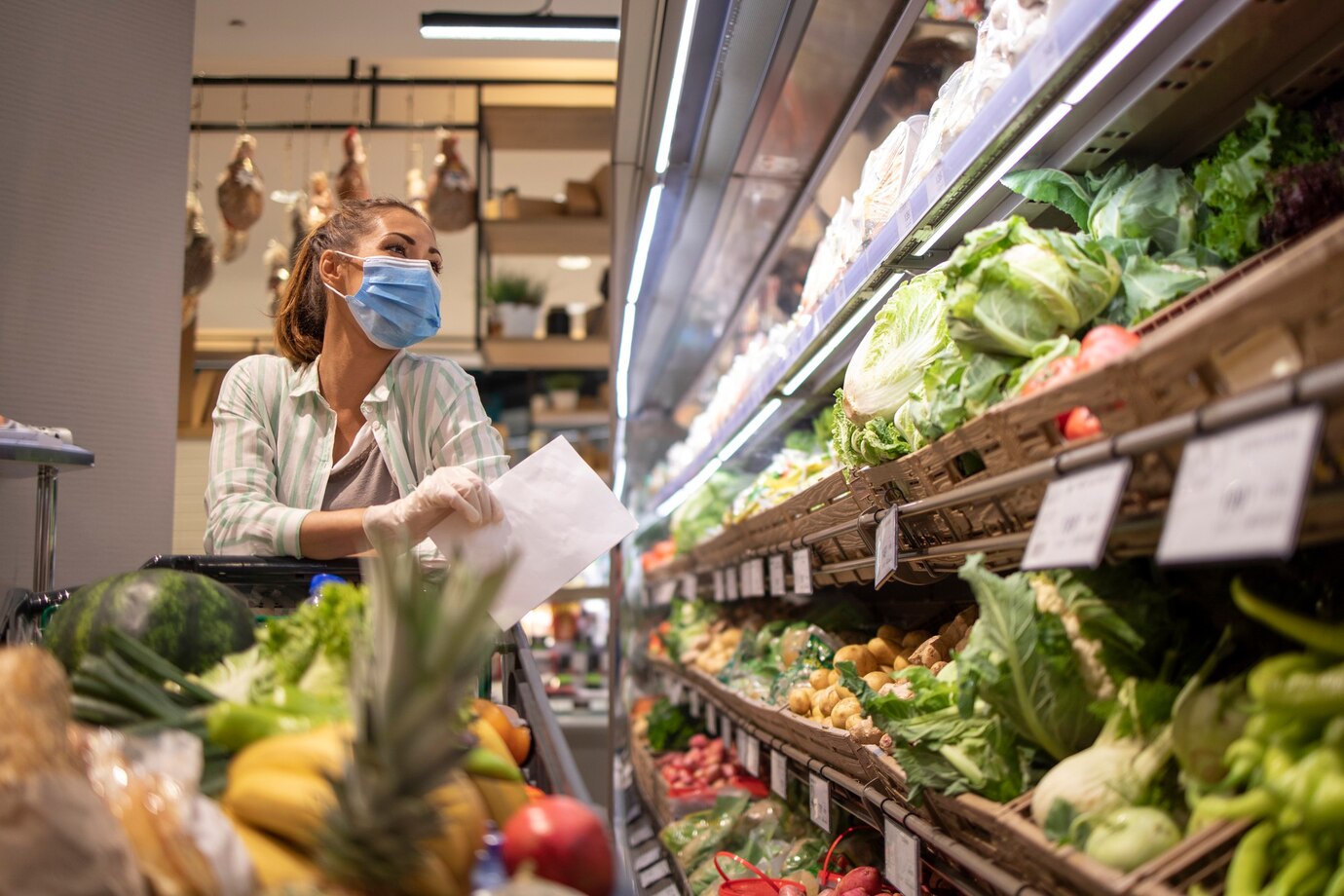Ensuring food safety in grocery stores is crucial for protecting customer health and maintaining a positive store reputation. When food safety protocols are followed, customers can trust that the products they buy are safe and fresh. This builds loyalty and increases customer confidence in returning to shop again.
Foodborne illnesses are a serious concern that can result from improper food handling and storage. These illnesses affect thousands every year, highlighting the need for stringent food safety practices. In addition to health concerns, incidents of contaminated food can damage a store’s reputation, leading to decreased sales and potential legal issues.
The Importance of Food Safety in Grocery Stores
Food safety is a critical component in the operation of grocery stores. Ensuring that food is safe to consume protects customers’ health and keeps them coming back. When grocery stores prioritize food safety, they help prevent foodborne illnesses, which can be dangerous and even life-threatening. This commitment to safety ensures that shoppers can trust the products they buy.
Food safety directly impacts a store’s reputation. A single incident of food contamination can lead to bad publicity, loss of trust, and reduced sales. Shoppers may choose to visit competitors if they doubt a store’s ability to provide safe food. Thus, maintaining high safety standards is key to building a loyal customer base and sustaining business success.
Stores can reinforce food safety through proper employee training and by implementing strict hygiene practices. Employees need to understand the importance of washing hands, sanitizing surfaces, and handling food properly. By prioritizing food safety, stores not only ensure the well-being of their customers but also protect their brand and good standing in the community.
Common Food Safety Challenges in Retail
Retail grocery stores often face several challenges when it comes to food safety. Addressing these challenges is essential for maintaining quality and preventing contamination. Let’s look at some typical food safety issues:
1. Temperature Control: Maintaining the correct temperature for perishables is crucial. Items like meat and dairy need to be kept cold at all times to prevent the growth of harmful bacteria.
2. Cross-Contamination: When raw foods, such as poultry and produce, come into contact, there’s a risk of cross-contamination. This happens when bacteria transfer from one food to another, often through unclean surfaces or utensils.
3. Poor Hygiene: Lack of proper handwashing and sanitation practices can introduce contaminants to food. This issue is common in environments where hygiene protocols are not strictly enforced.
4. Expired Products: Failing to remove expired items from shelves can pose a health risk to customers. Outdated products may harbor bacteria or lose their nutritional value and taste.
These challenges can lead to significant consequences. For example, failure to maintain proper temperatures can cause spoilage, leading to waste and financial loss. Cross-contamination and poor hygiene practices can result in outbreaks of illness, damaging both health and trust.
Implementing Effective Food Safety Practices
Ensuring food safety in grocery stores requires a strategic approach. Implementing effective food safety practices is essential to maintaining high standards and protecting consumers. To achieve this, stores should develop comprehensive guidelines and train employees to follow them consistently.
One crucial strategy is regular staff training. Employees should learn proper handwashing techniques, safe food handling, and understanding food storage requirements. Providing ongoing education ensures that everyone stays updated on the latest food safety protocols.
Stores should establish strict procedures for receiving and handling stock. This includes checking the temperature of deliveries, inspecting product quality, and rotating stock using the First In, First Out (FIFO) method. Regular cleaning schedules for equipment and surfaces also play a key role in preventing contamination.
Clear labeling and storage instructions can reduce errors and make it easier for staff to maintain high standards. Additionally, conducting regular audits and inspections helps identify weak points in procedures, allowing for timely improvements.
Leveraging Technology for Enhanced Food Safety
Technology plays a significant role in boosting food safety measures within grocery stores. It offers smart solutions to monitor and maintain high standards, ensuring that food reaches customers safely.
Automated temperature monitoring systems are an effective tool that stores can use to ensure perishable foods are kept at safe temperatures. These systems can continuously track the temperature of freezers and refrigerators, sending alerts if they fall outside of the safe range. This proactive measure prevents spoilage and minimizes waste.
Humidity control technology is equally important for food items like produce that require specific environments to stay fresh. By maintaining optimal humidity levels, stores can ensure that fruits and vegetables remain crisp and flavorful until purchased.
Real-time monitoring and alert systems provide an additional layer of security. These tools alert staff to any irregularities that need immediate attention, such as equipment malfunctions or deviations from storage conditions. This rapid response capability is key to preventing potential food safety issues before they become larger problems.
Conclusion:
Ensuring top-notch food safety in grocery stores is vital for protecting public health and maintaining strong customer relationships. By understanding common challenges and implementing effective practices, stores can create a safer shopping environment. Leveraging technology further enhances these efforts, enabling precise monitoring and quick responses to potential issues.
Join Qualified Controls in advancing your store’s food safety systems. Our cutting-edge technology provides real-time monitoring and temperature control for food safety, ensuring that your products meet the highest safety standards. Trust us to help you create a safe and reliable shopping experience that satisfies your customers’ needs while protecting your store’s reputation!


